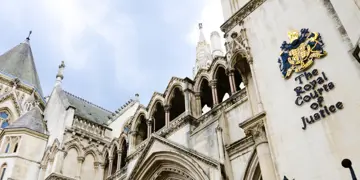PA regulation unlawful, claims group of doctors
PA regulation unlawful, claims group of doctors
Anaesthetists United says GMC acts irrationally in its approach to overseeing associate staff
The GMC’s failure to regulate associate professionals properly has endangered patient safety and undermined trust in the medical profession, a court has heard.
A judicial review, which could have huge implications over the use and regulation of PAs and AAs (physician associates and anaesthesia associates) in the NHS, opened at the High Court in London on 14 May.
The case, which has been brought by doctors’ campaign group AU (Anaesthetists United), argues the GMC continues to act unlawfully and irrationally in its approach to regulating associate staff.
In presenting its case to the court, AU has argued the medical regulator’s refusal to introduce a scope of practice for PAs/AAs, setting out the limits of their clinical roles and responsibilities, has resulted in harm to patients and damaged public trust in healthcare.
It also contends that guidance designed to support doctors in the supervision of associate staff in healthcare settings should also be considered unlawful for failing to ensure the ‘proper and considered delegation of tasks’.
Safety concerns
Following an order by Parliament, the GMC assumed regulatory responsibility for associates last December.
Although PAs and AAs are now included within the remit of the regulator’s Good Medical Practice guidance, the GMC has resisted implementing a scope of practice determining the limits and responsibilities of the roles of associate staff.
Speaking on behalf of AU in court, barrister Tom de la Mare KC explained how data from surveys conducted by the BMA and Doctors Association UK had highlighted the medical professions’ ‘real, concrete safety concerns’ about the approach to regulating associates.
Citing the BMA’s survey evidence, which was published almost 12 months before the GMC began to regulate PAs and AAs, Mr de la Mare said the regulator had not appeared to have given these findings ‘any significant consideration’.
He said: ‘The evidence shows that a common problem is that associates do not appreciate the limits of their competence and regularly work beyond their competence.
‘The absence of a scope of practice is a critical factor in PAs working beyond their competence – what they should and should not be doing [and] the absence of a scope of practice makes it very much harder, if not impossible, for a doctor to delegate or supervise the work of an associate.’
Patient uncertainty
Mr de la Mare went on to tell the court that the lack of clarity over associates’ roles was contributing to uncertainty among patients, adding that it was ‘impossible to overstate how corrosive of public trust’ this confusion was for the medical profession and health service.
He said: ‘Faced with these risks, no rational regulator would have done nothing’.
Fellow claimants alongside AU in the ongoing judicial review are Marion and Brendan Chesterton. In 2022, the Chesterton’s 30-year-old daughter Emily died after two consultations with a PA at her local GP surgery.
Emily, who had suffered a pulmonary embolism, had been sent home by the PA, who had determined that her symptoms were due to anxiety.
The court heard how Emily had been unaware that the PA she had encountered was not in fact a doctor, and how her death had been the result of a ‘catalogue of errors’ on the part of the PA who had not even discussed Emily’s case with the practice GP.
Survival possible
Barrister for AU and the Chestertons, Emily MacKenzie told the court: ‘Emily should have been immediately referred to hospital [and] if she had been the likelihood is she would have been treated and survived.
‘Emily could not give informed consent since she did not know the person she was seeing was not a doctor. Had she or her family been told the person was a physician associate, it wouldn’t have helped since they were unaware of the term.’
The absence of a formal requirement for PAs and AAs to identify themselves as such to patients was further reiterated by the BMA’s legal representative Jenni Richards KC.
Ms Richards explained that, while GMC guidance to medical students imposed a duty to ensure that they clearly identified themselves as medical students to patients and other healthcare staff, no such obligation had been imposed on associates.
Representing the GMC, Rory Dunlop KC told the court that the GMC, while mindful of the concerns regarding PAs and AAs working beyond their competence, supervision and identification, the regulator took ‘a different view’ on how they could be addressed.
He said: ‘The claimant and the BMA believe that the best way to protect the public is by setting limits on the role of associates.
‘Setting hard limits might reduce the risks of associates working beyond their competence, but it won’t eliminate that risk [and] there will always be examples of individuals exceeding these limits, whether they are set locally or nationally.’
He added: ‘Hard limits might also limit the contributions that associates can make to the NHS.’
Limited responsibility
Responding to the claims that the GMC had acted irrationally by failing to impose a scope of practice on associates, Mr Dunlop told the court that while Parliament had tasked the GMC with regulation, it had never directed the regulator to set limits on what work these staff could do.
He says: ‘If Parliament thought there were blindingly obvious limits [to impose on associates] it could have made it a duty [and] if it was so blindingly obvious why didn’t Parliament do that?’
‘The reality is that the claimants are using the argument of rationality to get the court to impose an order that Parliament did not.’
While the Chestertons and AU are the claimants in the judicial review, the BMA is an interested party in the case and made oral submissions at the hearing. The BMA is also providing financial support to the fund the legal challenge.
Speaking in advance of the case, BMA council chair Philip Banfield gave thanks to the hard work and campaigning of AU and paid tribute to the courage and dignity shown by Emily Chesterton’s parents.
Capability concerns
He said: ‘What Brendan and Marion Chesterton went through, losing their daughter Emily in such tragically avoidable circumstances, is something no parent should ever have to experience. It is a testament to their courage and determination to see that the chances of this happening again are drastically minimised that they have joined this case against the GMC.
‘At its heart the case is simple: the GMC is our medical regulator. It should have a duty to protect patients. Yet it persistently declines to set out what PAs can and can’t do.
‘We know from bitter experience that without a clear scope of practice in place, PAs will be permitted to do medical work and procedures that far exceed their capabilities, often with terrible consequences.’
Brendan and Marion Chesterton were present in court for both days of the hearing, with Marion having delivered a statement outside the court ahead of the proceedings on day one of the case.
She said: ‘To lose a child is so very painful, it is not the right order of this world. However, to lose a child and then discover that it was avoidable is the worst pain ever.
‘Since Emily’s inquest, we have been campaigning to raise awareness about physician associates and anaesthesia associates, so that other patients can be better informed as to who is treating them. We do not want anyone else going through the torture we have endured.’
The case continues with the hearing next in the High Court on 9 June.



